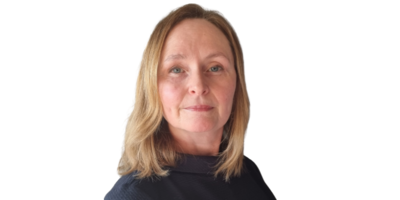Care home workers turned to WhatsApp for help during COVID-19 outbreak

Analysis of social media messages between care home staff revealed growing concerns about lack of guidance as the pandemic swept the country.
Thousands of WhatsApp messages between 250 care home workers during the first coronavirus wave show workers were often asking each other questions due to a lack of formal guidance.
Staff asked where to purchase PPE, whether guidelines existed for isolating residents returning from hospital, and how they could access testing.
But guidance either did not exist, was conflicting, or staff were not aware of it.
Care home staff formed the messaging group themselves in partnership with colleagues to offer support during the first wave. As group members, researchers at the University of Leeds analysed the questions and the uncertainties raised.
Scant care home-specific guidance during the early stages meant that basic information needs of care home staff were not satisfied.
The academic team found most of the questions were about infection control and prevention, and could have been tackled immediately through timely, responsive and unambiguous fact-based guidance.
But their analyses revealed scant guidance for care homes meant these basic needs went unmet.
Peter Hodkinson, Managing Director of Leeds care home company Westward Care Ltd, said: “This report highlights the isolation of care homes and their staff and the shortcomings of the ‘arm’s length’ approach to the commissioning of these services.
"We need much more sector informed research to improve the outcome of those in receipt of care and the highest quality of care available to meet their needs. This will only be done by much closer collaboration.”
The social media messages reveal staff concerns over residents’ wellbeing and relatives’ anxieties, uncertainties over which symptoms predicted the need for self-isolating, and questions about how long staff with symptoms should self-isolate.
It is the first systematic capture of the questions and uncertainties expressed by care home staff in the early stages of the COVID-19 pandemic.
The study has identified other areas of research which, importantly, have been informed by the sector itself. These include the most effective strategies for resident and staff wellbeing, recruitment, communication and organisational impact.
Professor Karen Spilsbury, Chair in Nursing Research at Leeds’ School of Healthcare, said: “COVID-19 has tragically impacted on long-term care worldwide, particularly for older people living in care homes.
“The pandemic has created new and unanticipated uncertainties for care home staff caring for older people.
“Scant care home-specific guidance during the early stages meant that basic information needs of care home staff were not satisfied.”
 Care home workers' basic needs for information and guidance were not met during the first wave of the COVID-19 pandemic, researchers have found. (Picture: Pixabay/Geralt)
Care home workers' basic needs for information and guidance were not met during the first wave of the COVID-19 pandemic, researchers have found. (Picture: Pixabay/Geralt)
Professor Spilsbury said policy makers, commissioners and regulators should make answering these questions a priority, and called for investment for research into the evidence produced by the study.
She said: “The experiences of care home staff should serve to focus the evidence-based response to the pandemic in care homes.
“We want to see care home providers and staff given timely, responsive and unambiguous guidance as they learn to live with and manage COVID-19.”
The work was carried out in partnership with care providers Springfield Healthcare and Westward Care under the NICHE-Leeds research and innovation programme.
Cyd Akrill, Chief Nursing Officer for Springfield Healthcare, said: “In the early weeks of the pandemic it was frustrating and time consuming because guidance was often conflicting and the amount of advice was not always helpful.
"This research brought shared uncertainties together and helped us consider how they could be addressed. We were listened to and this was important.
"Our partnership with NICHE-Leeds yet again was invaluable not only to us but nationally and internationally.”
Professor Carl Thompson, Dame Kathleen Raven Chair in Clinical Research at Leeds, said: “The basis for the kinds of evidence that can truly make a difference to the lives of people living and working in care homes are the uncertainties that people are struggling to address without reliable high-quality research that tackles what really matters.
"This is the first research to shine a light on these uncertainties, the questions that people have in homes and the research that can help.”
Professor Adam Gordon, President-Elect of the British Geriatrics Society, said: “These research findings show us that care home staff were weeks, if not months, ahead of the government guidance when it came to identifying the most important areas of concern around the pandemic.
"They tell us that that those who write guidance for the sector need to develop better ways of rapidly consulting with and collating advice from care home staff.
"If we give these professionals a stronger voice, we’ll make the right decisions quicker, and with greater certainty.”
Further information
Picture credit: Pixabay/Alexandra_Koch
The paper: "Seeking Answers for Care Homes during the COVID-19 pandemic (COVID SEARCH)" is published in Age and Ageing.
NICHE-Leeds (Nurturing Innovation in Care Home Excellence in Leeds) is a partnership between Leeds Care Association care home organisations and the University of Leeds, working with Leeds City Council. The aim of this partnership is to undertake research that address questions that matter most to those living and working in care homes and that will promote quality of life, quality of care and quality of work. More information is available at niche.leeds.ac.uk.
For further details, contact University of Leeds press officer Lauren Ballinger at L.ballinger@leeds.ac.uk.



